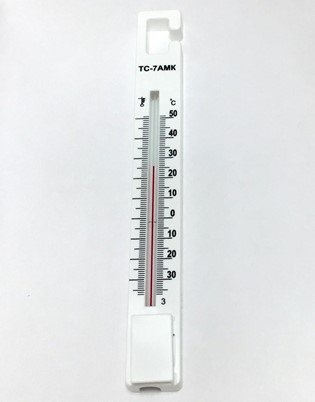Experts assessed the threat of sanctions for the digital transformation of Russia

 PIONEER MEIZHENG BIO-TECH (5 in1) JC0871/ Rapid tests for the determination of the residual amount of β-lactams, tetracyclines, chloramphenicol, streptomycins, ceftiofur in milk, whey.
PIONEER MEIZHENG BIO-TECH (5 in1) JC0871/ Rapid tests for the determination of the residual amount of β-lactams, tetracyclines, chloramphenicol, streptomycins, ceftiofur in milk, whey. PIONEER MEIZHENG BIO-TECH (5 in1) JC1165 / Rapid tests for the determination of the residual amount of halofuginone, flavomycin, novobiocin, flunixin, dexamethasone / prednisolone in milk, whey
PIONEER MEIZHENG BIO-TECH (5 in1) JC1165 / Rapid tests for the determination of the residual amount of halofuginone, flavomycin, novobiocin, flunixin, dexamethasone / prednisolone in milk, whey
Economic sanctions imposed on RUSSIA , including restrictions on the supply of high-tech products and the temporary cessation of activities in the Russian market of many foreign companies, threaten plans to achieve the national goal of digital transformation by 2030. This conclusion is made by the authors of the HSE report (available from RBC).
“Many digital transformation projects may be suspended, especially those involving the use of “sub-sanctioned” foreign software, ICT equipment and electronics, at least until Russian or foreign alternatives appear,” the document says.
According to the decree of the President of Russia dated July 21, 2020, digital transformation is one of the national goals until 2030. It is assumed that by this date the share of socially significant services available in electronic form will grow to 95%; the proportion of households connected to broadband Internet access will increase to 97%; investments in domestic solutions in the field of information technology should grow four times compared to 2019, etc.
SAP announced further measures to withdraw from Russia Business
The HSE report notes that in 2015-2021, the growth rate of information and communication technologies (ICT) exceeded the growth rate of GDP: 35% versus 7% in real terms. Last year, the sector reached a gross value added of about 3.72 trillion rubles.
However, 70% of this indicator - 2.62 trillion rubles, or $ 35.5 billion - accounted for ICT imports of goods and services, and this figure increased compared to previous years (in 2019 - 64%, in 2020 - m - 67%), the authors of the report note. According to them, a strong dependence on foreign software remains, both applied like enterprise resource planning (ERP) systems and basic ones (operating systems, database management, etc.), as well as on electronic component base and telecommunications equipment.
What sanctions were imposed on the supply of ICT
After the start of a special military operation in Ukraine in late February, the US authorities imposed a ban on the import into Russia without a special license of high-tech products for the defense, aerospace and shipbuilding industries. It is assumed that by default the issuance of such a license will be denied, exceptions are only for goods that ensure the safety of flights and navigation, humanitarian needs, intergovernmental cooperation in space, civil telecommunications infrastructure and a number of others.
The EU authorities banned the EXPORT to Russia of household appliances, game consoles and similar goods worth more than €750 per unit, as well as the export of batches of quantum computers and advanced semiconductors, high-tech electronics, software worth more than €10 billion. The list of Russian citizens and companies was significantly expanded. under sanctions.
Read on RBC Pro Pro 180-degree turn: what and with whom Russiawill trade now Forecasts Pro European ports are closed to Russia. How to ship goods from CHINA now Pro Carbon Branding Articles:why companies release clone productsCan the Russian "daughter" disobey the "mother's" ban on work?Five Ways to Derail Sales Pro Articles Need Dialogue:how product manufacturers respond to sanctions Articles Pro Why brands need a mission and why it is so important in a crisisWhat are the restrictions
Since the announcement of the sanctions, many international IT companies have suspended or refused to operate in the Russian market, including Oracle, SAP and MICROSOFT. As noted in the HSE report, Russia imports computer services and software mainly from Western countries (the largest suppliers are Germany with a share of 16.4%, the usa with 9.6%, the Netherlands with 9.1%, etc.). In the import of electronics, equipment and other ICT goods, 85% are from Asian countries, including 65% from China . However, most of the equipment and electronics produced in this region is based on the technologies and intellectual property of Western companies, which have the right to impose restrictions on their export to Russia, the authors of the report write.
Beeline received a batch of equipment from HUAWEI Technology and media
Technological sanctions against Russia pose a threat to the development of the triad of end-to-end technologies that underlie digital transformation - artificial intelligence, the Internet of things and fifth generation communications networks (5G). In particular, the development of artificial intelligence requires computing power - supercomputers, the creation of which uses NVIDIA, Intel, AMD graphics accelerators. In early March, these companies announced the suspension of supplies to Russia. The shortage and rise in the cost of servers, data storage systems, the unavailability of specialized foreign software, as well as software development tools will also have a negative impact on digital transformation in most industries.
Parallel imports (allowing the import of demanded foreign-made goods into the country without the consent of the right holders) and “other adaptation solutions” will be able to ease the restrictions. But the report emphasizes that currently “no country in the world is able to fully provide itself with all the necessary digital technologies.”
According to calculations by the HSE Institute for Statistical Research and Economics of Knowledge, based on data from Rosstat, Russian organizations’ spending on the introduction and use of digital technologies increased by 26% last year compared to 2020, but this year in real terms they may not decrease. by less than 26%, in 2023 they will fall by another 5%, and in 2024 they will grow by 7% compared to the level of the previous year “due to more active implementation of domestic software, establishing supplies of ICT equipment.”
Nokia will leave Russia Business
According to Oleg Kivokurtsev, DIRECTOR of development at Promobot (develops robots), technological sanctions “really pose a threat to the development of technologies that underlie digital transformation.” “The main threat is blocking the supply of semiconductors, processors and other high-tech products for telecommunications. Without them, it is impossible to build a communication infrastructure. The only way out of this situation will be import substitution and success in the negotiation process regarding supplies,” he agrees.
Alexander Sivolobov, Deputy HEAD of the Competence Center of the National Technology Initiative based on Skoltech for wireless communication and the Internet of Things, calls the sanctions a “catalyst for large-scale change.” “Manufacturers will have to transfer developments to affordable technology platforms, build reliable production chains and renew partnerships, and the entire industry will have to adapt to the new economic “normality”. Of course, it will be difficult, additional investments will be needed, but sanctions in themselves are not a threat, but a sharp acceleration of the processes of de-globalization of the world economy and technological ties that have been outlined in the past few years,” Sivolobov believes. In his opinion, the threat to the industry will be "the denial of deep changes, the approach of the "temporary worker", waiting "for everything to return to normal."
What other negative consequences of sanctions
In addition to restrictions on ICT imports, sanctions negatively affect export-oriented IT companies that worked primarily with Western customers (they accounted for at least 70% of exports of computer services in 2021, including 35% to the United States), the report says. According to Russoft, among IT companies in Russia, about one third worked, including for the foreign market.
The complication of the economic situation, the threat of “professional isolation” (disconnection from the usual global IT services) and other factors that arise against the backdrop of sanctions exacerbate the problem of migration of highly qualified IT personnel, the shortage of which was previously estimated at several hundred thousand people. The report estimates that 50,000-100,000 software developers may leave Russia for these reasons.
Favorable course inFavorable exchange rate at VTB officesThe larger the amount, the greater the benefit.More than 1,000 branches across the countryPreliminary calculation onlineconverterRead together with it:
- Bloomberg узнал о плане G7 значительно ужесточить санкции против РоссииНовый пакет санкций будет включать меры, в частности, против энергетики, финансов и военной промышленности, а также крупнейших нефтяных компаний России. Разработку пакета G7 планирует завершить в октябре, выяснил BLOOMBERG Страны «Большой семерки» (G7) приближаются к соглашению о значительном ужесточении санкций в отношении России, сообщает агентство Bloomberg со ссылкой на проект заявления. «Мы с...
- Фон дер Ляйен заявила о смене подхода к санкциям против РоссииНовый подход подразумевает не предложение поэтапных санкций, а «гораздо более жесткие меры» в отношении энергетики, финансовых услуг и торговли, все это уже входит в 19-й пакет, заявила глава ЕК Урсула фон дер Ляйен Евросоюз при подготовке 19-го пакета санкций против России меняет подход, переходя «от поэтапного усиления давления к жестким мерам». Об этом заявила глава Европейской комиссии Урсула ...
- Премьер Финляндии призвал ЕС быть оборонным союзом, а не торговым блокомЧтобы избежать потенциальной угрозы от «враждебных государств», Евросоюз должен укреплять оборону и сотрудничать в данной сфере, заявил финский премьер Орпо. Он отметил, что это не будет значить, что Брюссель «вытесняет» НАТО Петтери Орпо Евросоюз должен взять на себя «беспрецедентные полномочия», чтобы защититься от «растущих угроз». Об этом сказал премьер-министр Финляндии Петтери Орпо, сообщает...


























































